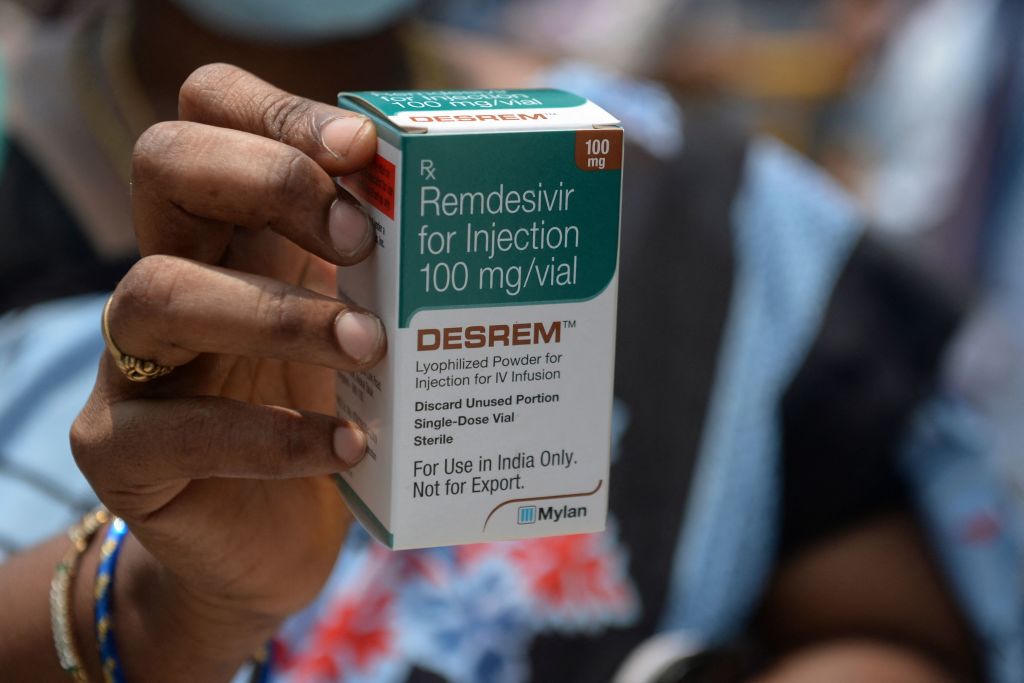Aditi, 37, bought Remdesivir, an antiviral medication currently authorized for COVID-19 treatment in India, from the black market in Delhi for her father who has been on a ventilator in the ICU for four days. She searched for 48 hours non-stop, receiving leads from friends, family members, social media hashtags, and online citizen-led volunteer groups to find the drug. One unsuccessful lead she came across was from a young girl who was selling Remdesivir originally bought for her parents who both died from the coronavirus.
Finally, she bought the medicine from a random man who sent a middleman to make the transaction with her driver at the street near the seller’s house. The middleman initially asked to meet at 11 p.m. but Aditi thought it was too risky. (Aditi asked to use a pseudonym, citing concerns around her black market purchases.)
She paid Rs. 35,000 (approximately $470 USD) for one bottle of the medication. “I was initially afraid to purchase anything from the black market. It felt risky and horrible. In a situation of life or death, this was my only option,” she says.
Women are turning to the black market to source life-saving supplies for their family members as people sell medication on the black market at five to ten times the original cost. Like Aditi, some of these women who are trying to keep their family members alive grapple with these illegal purchases, the fear of receiving counterfeit materials, or being deceived by a seller after sending a payment.
“I would rather never do this again,” says Aditi.
Akriti Khosla, a 29-year-old from Delhi, was trying to purchase Remdesivir for an uncle but lost money after being stood up by two sellers who claimed they would both sell her the medication.
“The money lost is one thing, but the absolute helplessness you feel knowing it was your last chance to save your loved one is gone with it, too,” she says. She has been working to find medication and other supplies from the Black Market since April 19th. Every day, she checks citizen-led Facebook groups, calls friends and family members and sends messages to find potential leads. Once she finds a lead, she calls them and does her best to vet them, asking them about their supply, cost, location and how fast they can meet her.
“My fingers are numb, my brain is dead and I have lost all hope. But we have to keep going because if I don’t help, who will?” she says.
Even women who are infected with the virus themselves are using every bit of energy they have left to continue to help others. “My stepmom, who is still very sick with the coronavirus, is running around to track down more medicine for my father,” Aditi says. Her stepmom has been infected with the virus for the past week and is still experiencing many intense symptoms like a fever, chills, aches and fatigue.
On some days, the glimmer of hope that keeps Khosla going fades away and there’s nothing she can do, she says.
“The things I’ve seen and heard will never be forgotten and I don’t know how any of us who have lived through this will ever quite be the same again,” Khosla says.



